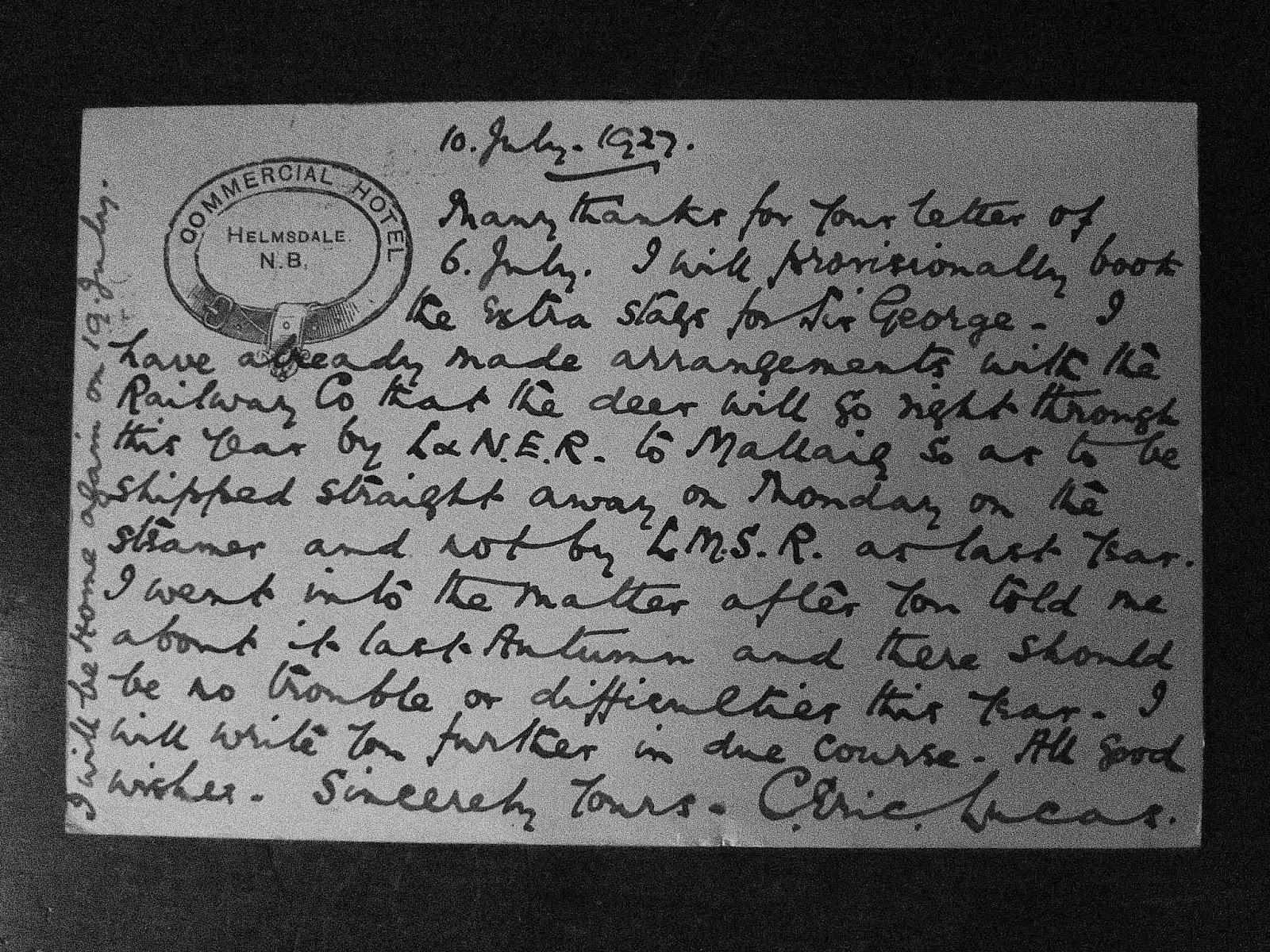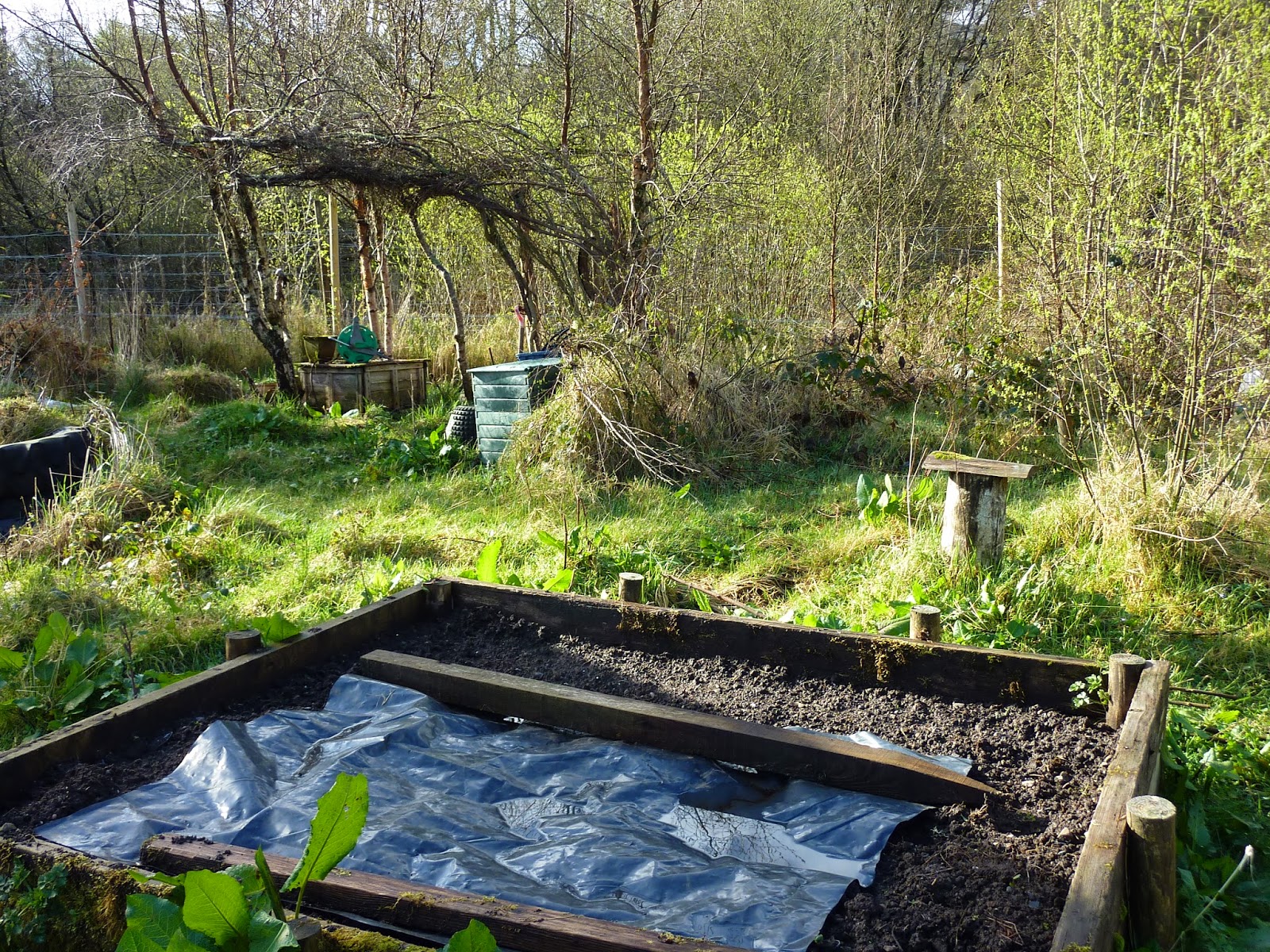 | ||
Happy Easter from the castle...
|
The nights may still be cold enough for an electric blanket (who says
we don't do luxury on Rum!) but now those cold clear nights are already just a
few hours long, the day starts at 5.00 am and sunlight hits the island as if we
were suddenly on a different planet, with new seedlings shooting upwards at an
alarming rate, trees bursting into blossom, swallows arriving daily, eagles
soaring above us on the thermal currents, etc, etc. And, er, the Calmac ferry bumping into
something at Muck and being put out of action just as the season is getting
underway! Tourists arrive (eventually, having been shipped over by the small "Seafari") with bikes and
huge amounts of "gear",
looking excited, if confused, and our first-ever cafe does a roaring trade in coffee
and cakes. We made just over £250 in a day
- not bad for the first cafe of the season! (More cafe news later...)
With sunlight and warmth comes a sense of meaning and purpose, also a
sense of letting go. Being here finally feels like a blessing, rather than me
just thinking guiltily that it ought to.
The quiet of the island feels mysterious and warm, rather than lonely
and cold - perhaps because it's not really silent but full of crazy birdsong
and the stormy noise of the waterfalls plunging down the mountains.
I have an apology to make. I
am sorry for having been so introspective (aka grumpy), so often on this blog
when so many of you would love to have the chance to do what we are doing. In some ways it would have been great just to go "Wow!!!!!! It's all, just, like, you know, AWESOME!", throw in a few
pictures of sea eagles and otters (when available) and leave it at that. But that wouldn't give you any idea at all
about how really different it is, and
therefore, how really amazing it is -
not just in a holiday romance kind of way, but in a deeper way.
Now I dare to hope I'm coming out the other side of the sense of alienation that seemed to dominate the first part of my time here. Maybe it seems like I've wasted 6 months worrying about being here, rather than just getting on and enjoying
it. But that's not true. Apart from the fact that I have enjoyed lots of it, I've also needed that time to understand
things better, to get to grips with a reality completely different from any
I've encountered before. To start to let
go of the compulsive need for outward structure and reassurance to make life
meaningful (not that I have actually let go of it, but you do have to start questioning it, because those things just aren't really there when you're here). Instead, I'm trying to do
things a bit differently, asking other people for support, coming to terms with the fact that some things in
life haven't worked out as planned or hoped for. (Big things, fundamental things - not just
"Damn! I never got that honeymoon in the Caribbean/got invited onto
Strictly/did that Pilates course").
Being on Rum, as we've said to each other and I've probably written on
here already, strips away all your pretences, and also all your usual sources
of reassurance.
BUT - and now please bear with me, it does get more upbeat - once the
shock wears off, this is a privilege.
How often in life do you get to reassess everything you think you know,
somewhere that's not only one of the darkest, but, come the spring, also one of
the lightest and most beautiful places in the British Isles? How often do you get to live somewhere where
you can hear yourself think properly, think things right through instead of
getting distracted and stressed by outside "stuff"? How often can you
go for a walk anywhere else and see an eagle fly past? Where else can you find your
way by starlight on a clear night? More practically, how often can you go a
whole day without spending any money or needing to lock anything away, and
furthermore how often do you get to live in a big pink castle? (Sorry, that's me just being smug now.) So finally and at last - I can now wholeheartedly recommend living on an island. If you ever have the chance to do something
that gets you this close to nature and takes you this far outside your comfort
zone - do it if you can.
Maybe it's the tea-shop that has cheered me up so much. We had a fantastic, if exhausting day, with maybe around 50-60 visitors. Doesn't sound much but that's one and a half times the number of inhabitants of Rum! With me over-organising everything in advance and Debs sweeping in superbly at the last minute with amazing soups and cakes (plus that awesome Lidl shopping from the mainland - thank you Debs!), we complemented each other well. Chocolate and banana loaf, Simnel cake, Easter bun(nie)s and Victoria sponge...by the end it was nearly all gone, devoured by the ravenous hordes. By the end I was totally worn out and suddenly realised I'd signed up to do this 3 days a week, not just one. So I have become even more organised and started a spreadsheet of recipes...having had a long, strenuous walk to Bloodstone Hill yesterday, I am now forcing myself to bake cakes today and to plan things just as cautiously as I did last week, just in case the cakes run out!
 |
| Debs' amazing Simnel cake |
Never having run any kind of enterprise before, it's a daunting thing to do, but also has something really special about it. People love finding a place on Rum where they can stop, keep dry and eat cake, and they are hugely appreciative. I just hope we can keep our standards high. But the main thing (for me) about our newly minted cafe is that it's given me a sense of actually belonging here. A tiny bit. And that counts for more than living in a castle. Okay, let's be honest - maybe not more, but just as much.
 |
| Yes!!! Finally made it. Bloodstone Hill in the background...very small figure in the foreground |



















